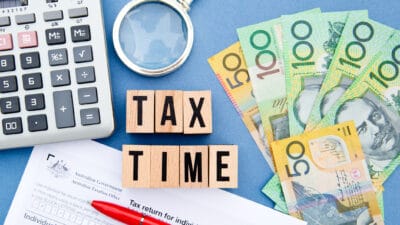The onset of the coronavirus and the economic lockdowns and shutdowns it has caused have turned all kinds of conventional wisdom on its head.
We don't live in a world that even closely resembles the one we were living in back in January – just 3 eternally long months ago.
Economic and financial security is tragically a thing of the past for many Australians and their businesses.
During this difficult period, most of our Foolish efforts have been concentrated on how to navigate these unchartered waters in an investing sense.
But many people are sadly not in a position to invest at all right now. Financial stability is an essential prerequisite of investing during all economic climates, and especially during these uncertain times. As the old parable goes, you can't build a robust house on sand.
Before you can even think about investing in ASX shares, it's important to make sure your financial wellbeing is on track.
So what does financial wellbeing entail?
An RMIT report commissioned for ASIC has some answers to this complex notion. According to the report, financial wellbeing is primarily influenced by 3 factors:
External conditions
External conditions refer to the health of the economy at large and the public and private mechanisms within it that assist us financially. For instance, losing one's job is an awful thing to go through – but it would be a lot worse if we weren't safe in the knowledge that there are government benefits that can assist someone in this predicament. Knowing there is support for those in financial difficulty can contribute to our overall wellbeing.
Household factors
Household factors are a more personalised set of circumstances. They can refer to our own income, health or debt obligations – or those of the people we live with. If you have a disproportionately large mortgage compared with your income, it can be a negative influence on your sense of wellbeing for example. These factors also include our level of 'social capital' or the skillsets we have. Those with more skills or specialised skills might feel better about their future employment or income prospects than others. All of these factors contribute to one's financial wellbeing.
Individual factors
Individual factors are the most personalised influencers of financial wellbeing. These could be your knowledge of the financial system and economics or just your personality. If you're naturally a more nervous or anxious person, it might be harder to feel financially sound than someone who is naturally more confident in nature. It also includes the stages of life one is at. A person of working age might feel more financially secure than someone who's retired, just from the benefit of having an employment income coming through the door.
Foolish takeaway
All of these factors contribute to a typical person's financial wellbeing. This is a difficult time for us all, no way around it. But with a proper understanding of how these factors work to influence how we feel about money, we can understand how we can better our own personal situations and become more financially secure. And that's the first step to building long-term success through investing!







